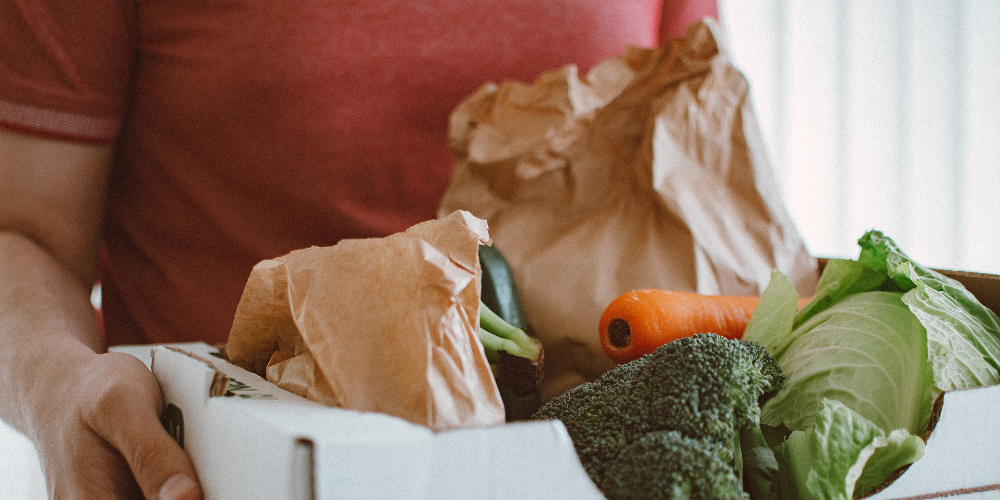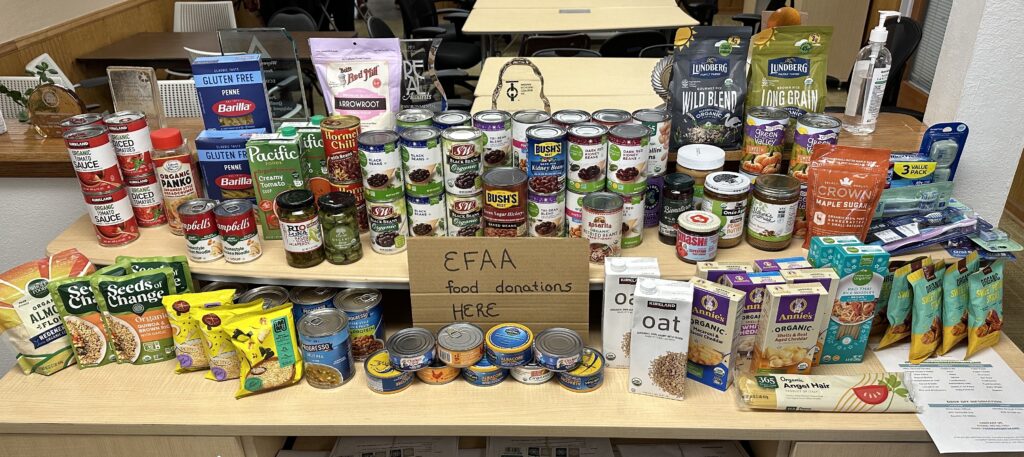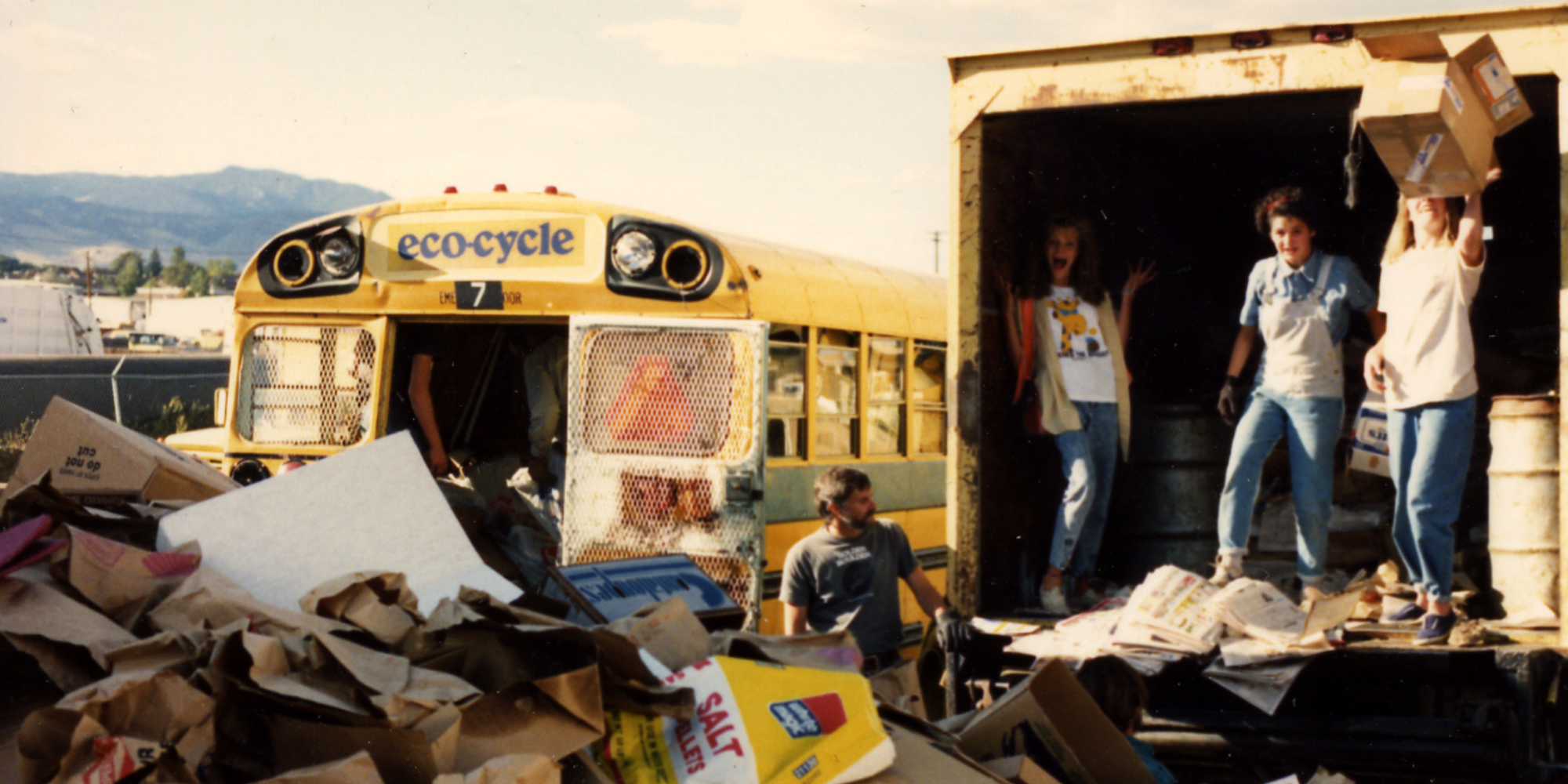The Intersection of Food Insecurity and Climate, and How You Can Take Action
In the past few months, there has been a great deal of news coverage regarding the status of food assistance programs in the US designed to prevent hunger. Read on to learn the many different ways that YOU can help your community stay fed and healthy.

For decades—starting back in 1939 with the launch of the nation’s first food stamp program—federal funds have been allocated to helping Americans cover food costs and reduce hunger and food insecurity through the US Food and Nutrition Service’s program, what we now call “SNAP” (Supplemental Nutrition Assistance Program).
Currently, 42 million Americans are eligible for SNAP assistance—about 1 in 8 individuals. A high proportion of these recipients are children. Fortunately, SNAP benefits are now restored, and our neighbors who rely on this program to keep their families fed will be able to receive their benefits once more. But the food insecurity problem, both in our country and globally, goes much deeper.
In the US, up to 40% of our food goes to waste every year. Combatting food insecurity is not only an aspect of social justice, it lies at the intersection of social and climate justice. The fact is that our diets and consumer choices around food have a major impact on the planet and its people. If our society were to waste less food, and prioritize creating a food system that works in right relationship with the Earth, we would:
- prevent the unnecessary loss of resources used to grow food,
- prevent methane produced by food that is landfilled and doesn’t get composted, and
- lower the threshold of access to food, potentially driving down costs that are prohibitively expensive for some households.
The good news is, it is possible to go Zero Waste when it comes to the groceries you buy, through careful meal planning as well as pantry management and storage tips. Learn how to prevent food waste at home!
Ways to Get Involved
While it is good news that SNAP benefits are being restored, these resources can only go so far toward putting meals on the table and ensuring everyone in our community has access to healthy food. If you’re interested in helping address hunger in your community, there are so many ways that YOU can make a difference! Contributions can take many forms, including giving your time, sharing extra pantry items, and/or offering your expendable income.
Participate in a Food Drive
Many of our partner organizations listed below accept donations of shelf-stable foods and toiletries for those in need. Better yet—lean in at your workplace and other places close to your heart (community groups, places of worship, etc.) to find out if they have a food pantry or supply drive already in place. If they don’t, you could be the person to organize one!

Food and supply donations collected by staff at Eco-Cycle’s headquarters this month for one of our partner orgs, the Emergency Family Assistance Association (EFAA).
Donate Funds
For some organizations, the most helpful contribution that people can make is simply to donate funds that can be used to purchase food at wholesale prices and in bulk quantities in order to produce hot and healthy meals for large numbers of people, or to cover overhead costs at food banks. All of our partner organizations listed below accept monetary donations through their websites.
Other ways to help financially include sponsoring a grocery buddy if you know someone personally who could use support covering the cost of food on a short-term or long-term basis, or participating in an organized mutual aid program such as the Nude Foods Market SNAP Support program. This opportunity allows you to sponsor a gift card granted to those who apply for food assistance at Boulder and Denver’s cutting-edge Zero Waste and plastic-free grocery stores.
Volunteer
Your time is one of the most valuable resources you have to give. Whether you volunteer at a food bank helping organize donations or help a gleaning organization facilitate pickups from businesses, the person-power you have to offer can make or break the mission at organizations fighting food waste and insecurity.
Scroll to the bottom to find a list of partner organizations Eco-Cycle recommends working with!
Other ways to get involved independently include building a Little Free Pantry in your yard, or using an app like Hungree or Plentiful.
Partner Organizations
Eco-Cycle has partnered with many food assistance organizations over the years and would like to amplify their efforts, including:
Emergency Family Assistance Association (EFAA) – Supports families with food and essential services; accepts a wide range of donations.
- Volunteer
- Donate supplies – Find a list of priority items here!
- Donate funds
Harvest of Hope Pantry – A food pantry providing groceries to individuals and families; accepts canned goods, grains, and produce.
- Volunteer
- Donate Supplies – Find a list of priority items here!
- Donate Funds
Community Food Share – Regional hunger-relief organization serving Boulder and Broomfield Counties; accepts nonperishables, produce, and some perishables.
- Volunteer – Includes ways that kids can get involved in the classroom!
- Donate Supplies
- Donate Funds
Sister Carmen – A nonprofit religious agency offering food assistance and wraparound support; accepts fresh and packaged foods.
Food Not Bombs – A global grassroots network active in more than 1,000 locations that turns recovered food from farms, grocers, and restaurants into free vegan meals. In Boulder, they host a community lunch every Saturday at noon by the Boulder Central Library.
- FNB accepts volunteers as well as monetary donations—message organizers to get involved!
Vindeket Foods – Vindeket (a name that combines the words “vindicate” and “advocate”) is a nonprofit food rescue that partners with grocery stores, restaurants, and farms to reduce wasted food.
Gleaning organizations:
Are you already working with an organization not listed here? We’d love to hear more. Contact [email protected] and let us know the ways you’re combatting food insecurity where you live. Together, we can keep communities fed—and protecting the people means protecting the planet.



























